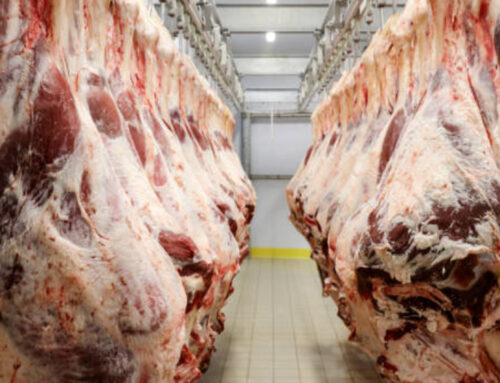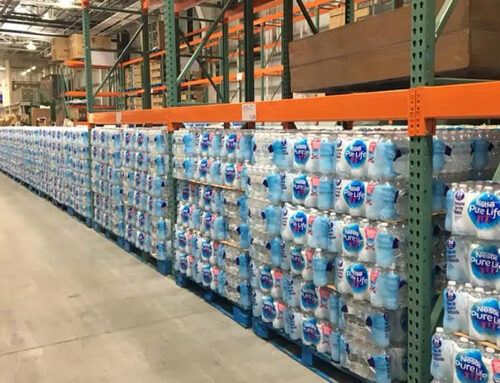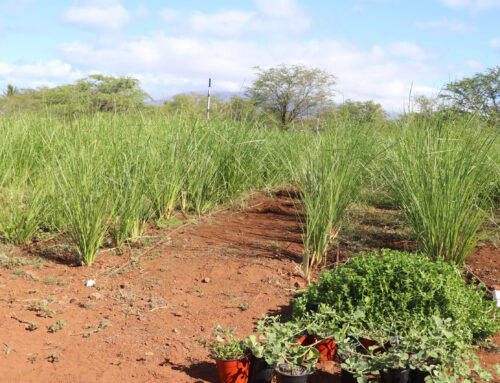The U.S. produces massive volumes of waste—including a significant portion of plastics—which is exported to other countries. This practice dates back several decades, driven by the lower costs and fewer disposal regulations abroad. These exports of plastic waste overwhelm waste management systems of developing countries, leading to environmental and health hazards, especially from non-recyclable plastics. Relevant international and domestic laws like the Basel Convention, Basel Ban Amendment, and U.S. laws aim to control plastic waste exports, though gaps remain.
Shifting export markets, shady waste broker practices, and hiding plastic waste under different export categories make it difficult to accurately track plastic waste volume. However, one thing is certain- fossil fuel plastic production is increasing, while fewer countries are accepting waste plastic from high-income countries. Amid this growing crisis, there is new legal action to hold fossil fuel companies and packaging producers responsible for excess plastic. This greater emphasis on producer responsibility, as well as reducing plastic production, is met with strong lobbying resistance by fossil fuel and related industries.
Introduction
Plastic waste is problematic because it persists in the environment, pollutes ecosystems, harms wildlife, and releases toxins into air, earth and water, creating long-term health and environmental risks (157,000 shipments, n.d.). Per capita, the U.S. produces more waste than any other country on the planet (Turrentine, 2019). Of the approximately 292 million tons of waste the U.S. produces annually, plastic waste makes up a significant portion (National overview, n.d.). Around one million tons of this plastic waste is exported globally each year. However, recent research reveals that plastic waste numbers could be as much as 40% higher overall due to plastics contained in other waste streams (Karlsson, T., et al., 2023). Only about 5% of U.S. waste plastics are recycled domestically (Plastic recycling, 2023).
The Organization for Economic Co-operation and Development (OECD), an intergovernmental policy group, reports a troubling rise in plastic production, which doubled from 258 million tons in 2000 to over 507 million tons in 2019. Worldwide, just 9% of plastic waste was recycled, while 19% was incinerated, nearly 50% went to landfills, and 22% was improperly disposed of or leaked into the environment. The COVID-19 pandemic increased single-use plastic waste significantly. Mismanaged plastic waste is the primary source of macroplastics in the environment, while microplastics are increasingly polluting rivers and oceans. Plastics also contribute 3.4% of global greenhouse gas emissions, mainly from fossil fuel-based production (Global plastics, 2022).
The recycling of plastic is highly inefficient and costly, making producing new plastic cheaper than recycling (DeWeerdt, 2022). Recycling in developing countries with low-cost labor makes recycling more viable. Materials that cannot be recycled are cheaper to dispose of, with fewer environmental regulations. Exporting waste, especially hazardous and plastic waste, from developed to developing countries under these circumstances is often termed “Waste Colonialism”. There is growing resistance from receiving countries due to environmental and human health concerns (Robles, 2023). The massive volume of plastic waste that is accumulating globally is bringing attention to the need for plastics reduction, and better solutions for recycling.
Legal Framework
Increasingly, international agreements and domestic laws are addressing plastic waste issues.
International Regulations and Treaties
The Basel Convention. The Basel Convention is an international treaty established to reduce movement of hazardous waste between countries, especially from developed to developing nations. It sets guidelines for the disposal and transboundary transport of hazardous waste, including plastics that contain harmful chemicals. The Basel Convention has been widely accepted globally by 191 countries. However, the U.S. is a signatory but not a party to the Convention, so its compliance is voluntary rather than legally binding (Basel convention- transboundary, n.d.).
The Basel Ban Amendment. The Basel Ban Amendment, which came into effect in 2019, strengthens these regulations by prohibiting the export of hazardous waste, including plastic waste, from developed countries to developing countries, unless the importing nation explicitly consents to it. This amendment was introduced to prevent the illegal trafficking and mismanagement of hazardous plastic waste, providing a framework for responsible management and reducing environmental harm, especially in countries with less capacity to handle such waste (Basel convention- hazardous, n.d.).
Global Plastics Treaty. During a UN Environmental Assembly in 2022, leaders from 175 nations committed to developing an international treaty to end plastic pollution. A UN Intergovernmental Negotiating Committee (INC) was established to create a legally binding instrument addressing plastics’ full lifecycle. However, by INC-4, oil and gas lobbyists had significantly influenced negotiations, limiting measures to reduce production. At INC-5, over 100 countries reached consensus on key issues, but major oil-producing nations opposed plastic production limits. The world’s largest oil producing country, the U.S., was absent for the negotiation on plastics reduction. The sessions are expected to resume in 2025 (Lee & Volcovici, 2024).
U.S. Laws and Regulations
The Resource Conservation and Recovery Act (RCRA) of 1976. RCRA primarily governs domestic waste management, including plastic waste, by setting standards for its generation, transportation, treatment, storage, and disposal to protect human health and the environment. It does not directly regulate transboundary shipments of waste, but does influence the export of hazardous waste, requiring U.S. exporters to comply with specific procedures, such as obtaining consent from the receiving country and notifying the Environmental Protection Agency (EPA). These requirements aim to ensure that hazardous waste shipments meet environmental and safety standards. However, most plastic waste is not considered hazardous, so RCRA’s applicability is limited, and the regulation of transboundary shipments often falls under other frameworks, such as the Basel Convention (which the U.S. has not ratified) or bilateral agreements with recipient countries. Exporters of non-hazardous waste still must comply with customs and international trade laws but are less regulated under RCRA specifically (US plastic waste, 2021).
The Pollution Recovery Act (PPA) of 1990. This Act emphasizes reducing waste and pollutants at their source. The PPA encourages practices that reduce the generation of hazardous substances in manufacturing processes and promotes recycling and conservation efforts. PPA litigation has not directly brought suit in cases like reductions in plastics production, but works alongside other environmental statutes. For example, Earth Island Institute’s 2020 case, where the organization sued major corporations like Coca-Cola, PepsiCo, and Nestlé, alleged their roles in plastic pollution under state laws and federal statutes, including claims of public nuisance and misrepresentation of recycling claims (Taking on, n.d.).
Other U.S. Laws
Another approach to reduce plastic waste and the need to export excess waste is to file suit against producers of plastic raw materials and producers of plastic packaging for creating an abundance of products with no environmentally sound way to dispose of or recycle them. This puts responsibility on the producers to deal with plastics recycling and reduction (The expanding landscape, 2024).
Several State Attorney Generals have filed producer responsibility lawsuits. One filed in California this year accuses Exxon Mobile of deceiving consumers about the recyclability of plastic products to promote the sale of single-use plastics. The case is built on claims related to public nuisance, misuse of natural resources, water contamination, false advertising, and violation of unfair competition laws. Connecticut and Minnesota AGs both filed suits regarding Hefty “recycling” trash bags that are not recyclable in either state. Connecticut went after the producer, Reynolds Consumer Products, Inc., under that state’s Unfair Trade Practices Act, while Minnesota went after two major retailers under that state’s Consumer Protection Act. Both state’s prevailed (The expanding landscape, 2024).
U.S. Exports of Plastic Waste
Until 2018, most U.S. plastic waste was sent to China, but this shifted after China implemented a near-total ban on plastic imports (Joyce, 2019). By 2023, Canada and Mexico became the largest recipients of U.S. plastic scrap, accounting for over half of exports. Other significant destinations included India, Malaysia, and Vietnam, though tightening regulations in these countries have forced waste brokers to seek alternative markets (Alves, 2024).
Roughly 36% of the U.S.’s waste exports go to nations that are not part of the Basel Ban Amendment, including Vietnam, a major player in the global plastic scrap trade. However, Vietnam’s growing domestic plastic consumption has strained its recycling infrastructure. In 2021, it imported 420,000 metric tons of plastic waste despite having capacity for only 300,000 tons. This surplus often leads to pollution, as waste is incinerated, illegally dumped, or mishandled, causing severe environmental and health impacts. One report describes discarded bags of plastic floating through village canals. A World Wildlife Fund report estimated that only one-third of imported plastic is recycled in Vietnam, with the rest ending up in unsanitary landfills or released into the environment (Rich countries, 2023).
Under a bi-lateral agreement made in 2020, the U.S. exports the largest amount of scrap and difficult to recycle plastic to Canada, and in exchange, Canada exports high value plastics to the U.S. for recycling (Basel convention- hazardous, n.d.). One reason for this cross-border exchange with Canada is because the U.S. has not ratified the Basel Convention or Basel Ban Amendment. This means the U.S. cannot legally export waste plastics to countries that have ratified the Basel Convention without the other countries express permission and commitment to responsibly dispose of the waste plastic (Basel convention- transboundary, n.d.), but can export to Canada due to the bi-lateral agreement. The waste plastics Canada takes in are incinerated, landfilled, or exported to other countries through brokers. Even though there is a promise to responsibly dispose of the plastic waste through the broker, the developing country that ultimately receives the waste may have less regulatory controls or diminished capacity to handle the waste. Plastic waste incinerated for fuel in Canada creates toxic emissions, and does not reduce demand for new plastics made from fossil fuels (Fawcett-Atkinson, 2021).
Mexico is also a large target for U.S. plastics waste. The two countries also have a bi-lateral agreement, but it only covers hazardous waste. Mexico is a Basel Convention member country, but has been slow to implement to the Basel Ban Amendment, which would provide regulation and protections on hazardous plastic waste. As Mexico’s economic status improves, so does its generation of domestic plastic waste, exceeding processing capacities. There is concern that imported plastics are incinerated for fuel, creating toxic emissions and furthering demand for virgin plastic. Mexico is also a large exporter of plastic waste, indicating that it may be acting as an intermediary for countries such as the U.S. to dispose of waste.
Other Legal Issues
The Myth of Plastic Recycling
The myth of plastic recycling in the U.S. stems from the belief that recycling can solve the plastic waste crisis, but this is far from the reality. While recycling was heavily promoted in the 1980s by the oil and packaging industries as a way to address the growing problem of throw-away single-use plastics, it was never intended to fully offset the vast amounts of plastic production. Recycling is limited because of high cost, complicated processes, toxic materials and degradation of plastic each time it is reused, unlike glass, which can be recycled infinitely. In reality, only a small fraction of plastic is recycled, and most is either landfilled, incinerated, or leaked into the environment. The system is not designed to keep up with the ever-increasing production of plastic, making recycling an inadequate solution to the larger issue of overproduction (Plastic recycling, 2024).
In 1974, an internal U.S. oil industry document revealed that the economic feasibility of recycling most plastics was highly questionable. This shows that the oil and gas industry was cognizant of the limitations of recycling as a solution to plastic waste even at that early stage, and is a foundational piece of evidence in several current lawsuits (Recycling is a lie, 2020).
Inaccurate reporting and subterfuge
The Environmental Investigation Agency reports widespread misdeclaration of plastic waste, shady supply chains dominated by unregulated brokers, and the subsequent dumping of substantial volumes of waste in countries with inadequate waste management infrastructure (Dirty deals II, n.d.). A 2020 INTERPOL report shows a steady rise in illegal plastic waste trade since 2018, with a notable increase in illegal shipments, often rerouted to Southeast Asia through various transit countries to hide their origin, forged documents and invalid waste registrations (INTERPOL report, 2020).
A recent study revealed that the total plastic trade is over 40% greater than previously estimated since figures do not account for plastics and waste in textiles, rubber, paper bales contaminated with plastic, and other sources. (Karlsson, T., et al., 2023).
Impact on developing countries
Communities in economically disadvantaged regions often bear an outsized share of the waste burden generated by wealthier nations. Without sufficient infrastructure to manage the overwhelming influx of plastic waste, many recipient countries face severe environmental and public health challenges. For instance, crude waste processing methods, such as burning in open pits or makeshift stoves, are frequently employed. These methods release harmful particulate matter and persistent organic pollutants (POPs) into the environment, exacerbating pollution and posing significant health risks to local populations (157,000, 2019). While this dynamic underscores a profound issue of environmental injustice, the problem is solvable.
The Basel Agreement and Basel Ban Amendment provide a framework for how exports from developed to underdeveloped countries can legally be accepted or restricted, which should provide some relief on waste systems (Alves, 2024). Watchdog groups, like the Basel Action Network, monitor materials dispatched for irregularities (US plastic, 2021). Scalable models to curb waste-generated pollution and methane emissions are readily available. In Vietnam, the International Finance Corporation (IFC), put together $30 million in financing to facilitate development of a waste-to-energy facility in the northern Red River Delta region. The project increases the country’s waste treatment capacity, protects against health risks, reduces its environmental footprint, creates jobs and economic opportunity for the region (IFC promotes, 2021).
Findings and Conclusion
Plastic waste is wreaking havoc on ecosystems, contaminating food and water supplies, and endangering global health and well-being. The narrative, promoted by big oil and packaging industries, that responsible recycling can manage plastic waste, has proven ineffective over time. It is crucial to embrace strategies that prioritize using less plastic while advancing sustainable alternatives. Supporting leaders committed to community health, environmental stewardship, and transparency about harmful chemicals in plastics is vital. Additionally, the U.S. must create its own infrastructure, and reevaluate sending plastic waste to developing countries that do not have appropriate infrastructure, which perpetuates environmental injustice. U.S. ratification of the Basel Convention and Basel Ban Amendment, alongside fostering the political will to lead global efforts in reducing plastic production and pollution, is imperative for meaningful change.
References
Alves, B. (2024, May 27). Scrap plastic exports from the United States from 2015 to 2023. Statista. https://www.statista.com/statistics/1097245/us-scrap-plastic-exports/
157,000 shipping containers of U.S. plastic waste exported to countries with poor waste management in 2018. (2019, March 6). Plastic Pollution Coalition. https://www.plasticpollutioncoalition.org/blog/2019/3/6/157000-shipping-containers-of-us-plastic-waste-exported-to-countries-with-poor-waste-management-in-2018National overview:
Basel convention on hazardous wastes. (n.d.) U.S. Department of State. https://www.state.gov/key-topics-office-of-environmental-quality-and-transboundary-issues/basel-convention-on-hazardous-wastes/
Basel convention on the control of transboundary movements of hazardous wastes and their disposal. (n.d.). Basel Convention. https://www.basel.int/
DeWeerdt, S. (2022, Dec. 13). Why it’s so hard to recycle plastic. Scientific American. https://www.scientificamerican.com/article/why-its-so-hard-to-recycle-plastic/
Dirty deals- Part two. (n.d.) Environmental Investigation Agency. https://eia-international.org/report/dirty-deals-part-two/
Facts and figures on materials, wastes and recycling. (n.d.). US Environmental Protection Agency. https://www.epa.gov/facts-and-figures-about-materials-waste-and-recycling/national-overview-facts-and-figures-materials
Fawcett-Atkinson, M. (2021, July 28). The secretive scrap plastic trade between Canada and the U.S. Canada’s National Observer. https://www.nationalobserver.com/2021/07/28/news/secretive-plastic-trade-canada-us
Global plastics outlook: Economic drivers, environmental impacts and policy options. (2022). OECD Publishing. https://doi.org/10.1787/de747aef-en
Guarascio, F. and Vu, K. (2024, Nov. 26). Top importer Vietnam struggles to recycle plastic waste, exposing limits of multibillion dollar trade. Reuters. https://www.reuters.com/sustainability/top-importer-vietnam-struggles-recycle-plastic-waste-2024-11-26/
IFC promotes waste-to-energy solutions as Vietnam shifts to a low-carbon economy. (2021, Dec. 16). International Finance Corporation. https://www.ifc.org/en/pressroom/2021/ifc-promotes-waste-to-energy-solutions-as-vietnam-shifts-to-a-low-carbon-economy
INTERPOL report alerts to sharp rise in plastic waste crime. (2020). INTERPOL. https://www.interpol.int/en/News-and-Events/News/2020/INTERPOL-report-alerts-to-sharp-rise-in-plastic-waste-crime
Joyce, C. (2019, March 13). Where will your plastic trash go now that China doesn’t want it. National Public Radio- Boston. https://www.wbur.org/npr/702501726/where-will-your-plastic-trash-go-now-that-china-doesnt-want-it
Karlsson, T., Dell, J., Sedat Gündoğdu, S., & Almroth, B. (2023, March). Plastic waste trade: The hidden numbers. https://ipen.org/sites/default/files/documents/ipen_plastic_waste_trade_report-final-3digital.pdf
Lee, J. and Volcovici, V. (2024, Dec. 2). Countries fail to reach agreement in UN plastic talks. https://www.reuters.com/business/environment/over-100-countries-back-plastic-treaty-caps-talks-reach-fierce-finish-2024-11-30/
Plastic recycling is a lie. (2023, Nov. 15). Earthday.org. https://www.earthday.org/plastic-recycling-is-a-lie/?gad_source=1&gclid=CjwKCAiAjeW6BhBAEiwAdKltMlyGDxJSBw_rb5noPOzMY7-2Aj3fBJhMq6_aFcyRfG61XbjxiZhLXRoCy1QQAvD_BwE
Recycling was a lie — a big lie — to sell more plastic, industry experts say. (2020, Sept. 23). CBC Docs. https://www.cbc.ca/documentaries/the-passionate-eye/recycling-was-a-lie-a-big-lie-to-sell-more-plastic-industry-experts-say-1.5735618
Rich countries export twice as much plastic waste to the developing world as previously thought. (2023, March 13). Grist. https://grist.org/equity/rich-countries-export-twice-as-much-plastic-waste-to-the-developing-world-as-previously-thought/
Robles, V. (2023, April 23). Plastic colonialism: Mexico’s waste imports from the US double in two years. https://english.elpais.com/economy-and-business/2023-04-23/plastic-colonialism-mexicos-waste-imports-from-the-us-double-in-two-years.html
Taking on big plastic. (n.d.) Earth Island. https://www.earthisland.org/index.php/advocates/suit/taking-on-big-plastic
The expanding landscape of plastic litigation: State attorneys general target allegedly deceptive advertising and environmental impacts (2024, Sept. 26). Crowell. https://www.crowell.com/en/insights/client-alerts/the-expanding-landscape-of-plastic-litigation-state-attorneys-general-target-allegedly-deceptive-advertising-and-environmental-impacts
Turrentine, J. (2019). The United States is the most wasteful country in the world. Natural Resource Defense Council. https://www.nrdc.org/stories/united-states-most-wasteful-country-world
US plastic waste exports in violation of new UN rules. (2021, March 11). Basel Action Network. https://www.ban.org/news-new/2021/3/11/us-plastic-waste-exports-in-violation-of-new-un-rules





